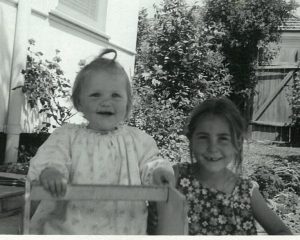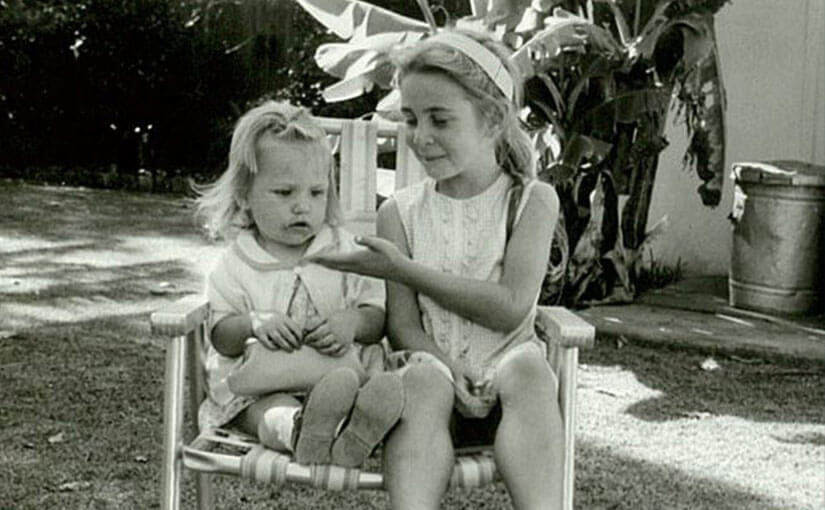Dr Donna Rudd (nee Harley) has had a successful career, both as a scientist, specialising in clinical biochemistry, and as a health educator in the tertiary sector; where she helps train the next generation of Medical Laboratory Scientists. These graduates will go on to help diagnose health conditions such as diabetes, organ disease, and cancers.
But Donna’s road to pathology came via a tragic route. When Donna’s sister Sarah was a little over the age of one, she was diagnosed with leukaemia.
‘We used to travel from Hurstville in Sydney to visit a Pathologist named Dr David Sugarman for treatment,’ says Donna.
It proved to be a memorable experience.
‘After Sarah would get a finger prick test at Dr Sugarman’s rooms, we would go across the road for a milkshake. I always remember Dr Sugarman’s houndstooth jacket,’ she said.
Sadly, Sarah died at age two. It was 1970 and treatment for leukaemia was rudimentary. In response Donna made two vows to her mum:
‘I told mum that one day I would work for Dr Sugarman, and that I’d also find a cure for leukaemia.’
Donna didn’t manage to achieve the second goal but did manage the first.
By 1985, Donna had completed a degree in Applied Science (Biomedical Science) at UTS and went to work with Dr Sugarman at Sugarman’s Pathology, as she had vowed to do 16 years earlier as a 6-year-old child.

She stayed there eight years, moving in 1993 from Sydney to Townsville where she took up a position as Senior Scientist at Townsville Pathology and a casual lecturer at James Cook University, during which time she also completed a PhD in physiology and pharmacology.
One of Dr Rudd’s passions as a senior lecturer is to bridge the gap between the clinical world and the science of pathology. The other is seeking recognition for scientists within the world of pathology.
She has witnessed a lot of change in pathology since she started working in the sector three decades ago. One of the main differences being NPAAC standards and National Association of Testing Authorities, Australia (NATA) auditing, which has made an enormous difference to quality and standards within the sector.
‘The technology has also changed dramatically with automation,’ says Dr Rudd ‘but the scientific voice remains key to high standards and the level of oversight. It can’t be done away with.
‘I’ve visited laboratories in other countries and you can tell the difference in quality and governance standards. Australian pathology is very much at the forefront of lab standards globally.’
From the tragedy of her sister Sarah’s premature death, a great career has been forged in pathology and health education, a career that has helped the health of tens of thousands of Australians as Dr Rudd helps to educate Australia’s next generation of pathologists and medical scientists.

